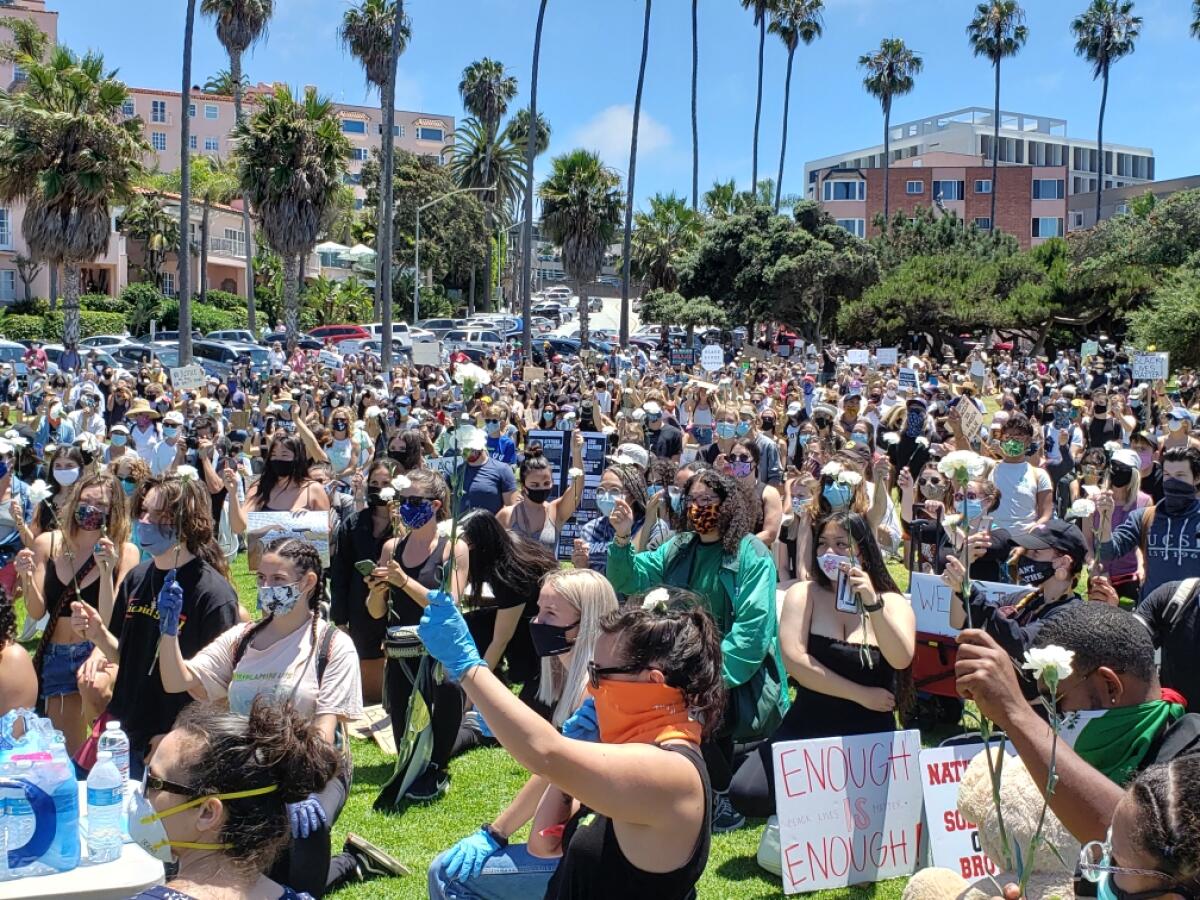A Word, Please: ‘E’ is the most devilish letter that you’ll ever know

- Share via
E is the most-used letter in the English alphabet. It’s also the most evil. This seemingly innocent vowel comes up in 11% of words in the dictionary, leaving second-place S in its dust at 8.7%. But in my highly unscientific analysis, E comes up in a hugely disproportionate number of spelling errors — like, maybe half of them. And I’m not just talking about typos like “teh” in place of “the.” I’m talking about actual misspellings of words that confound even smart people.
Here are just some of the words that prove the letter E is out to get you.
Sleight. Surely you’ve heard the expression “sleight of foot.” No? Then perhaps you’ve heard someone describe a card sharp as being possessed of impressive sleight? No again, right? The word “sleight” pretty much never comes up outside of a single expression: sleight of hand, meaning a cleverly executed trick or deception. So is it any wonder people mess up and spell it “slight”? For the record, “sleight” is defined as “deceitful craftiness” or “dexterity.”
Envelop. You can already see where I’m going with this. It’s just too easy to replace the verb “envelop,” meaning to enclose or surround completely, with the noun “envelope.” Plus, when you use the verb in the past tense, the “ed” on the end makes “envelop” look even more like “envelope.” And really, how weird does the third-person conjugation “envelops” look? For these reasons, it takes a conscious effort to not misspell envelop as envelope.
Grey. If you’re from outside the United States, you can sit this one out. But for us Yanks, “gray” is the preferred spelling.
Theater. Speaking of misplaced Anglophilia, no American need ever use the spelling “theatre.” True, it would be neato if “theatre” meant live stage performances and “theater” meant a place you hunker down with popcorn to watch a movie. But it’s just not so. The preferred American spelling puts the E before the R.
Breathe. I know what you’re thinking: It shouldn’t be hard to keep straight “breathe” and “breath.” Maybe. But on the other hand, what’s that second E even doing in “breathe”? How can a letter at the end of a word possibly change the vowel sound in the middle of the word, turning it from something that rhymes with “death” to something that rhymes with “teethe”? Like so many things in English, the dynamics of “breathe” defy logic. Spelling errors ensue.
Horde. When you type “a hoard of angry” into a Google search window, the website politely asks if you’d rather see results for the correctly spelled “horde.” When you answer no, up come the misspelled uses: “a hoard of angry women,” “a hoard of angry wolves” and, my favorite, “a hoard of angry and sentient bananas.” The letter E eluded all these users, who should have used the noun “horde” instead of the verb “hoard.”
Effect. Word-smart people know that “effect” is a noun, not to be confused with “affect,” a verb: a side effect can affect your health. But evil E won’t sit idly by letting smart people feel smart. “Effect” is also a verb. It means “to bring about.” The correct expression, then, is “to effect change,” though far too many smart people slip up and write “to affect change.”
Adrenaline. I can’t count how many travel articles I’ve edited over the years that talked about activities for “adrenalin junkies.” No such thing. Either you’re an adrenaline junkie or you’re an Adrenalin junkie. The former is the epinephrine your body sends into your bloodstream in scary or thrilling situations. The latter is a trademarked name for levorotatory epinephrine.
Lightening. Thunder and lightening, lightning one’s hair color — these E-inspired errors work both ways. For the record, the one with the E means to brighten or make lighter in color. Minus the E, you’re talking about bolts from the sky.
June Casagrande is the author of “The Joy of Syntax: A Simple Guide to All the Grammar You Know You Should Know.” She can be reached at [email protected].
All the latest on Orange County from Orange County.
Get our free TimesOC newsletter.
You may occasionally receive promotional content from the Daily Pilot.



